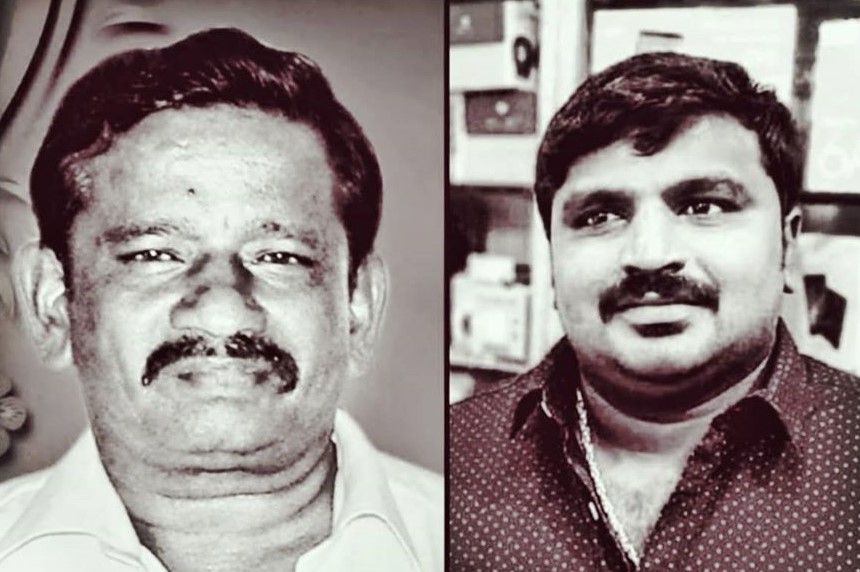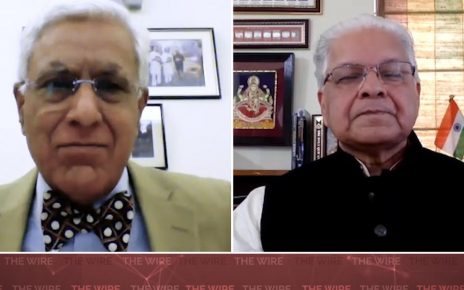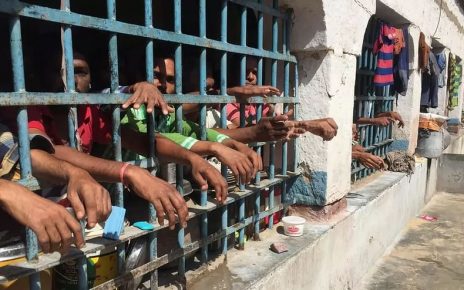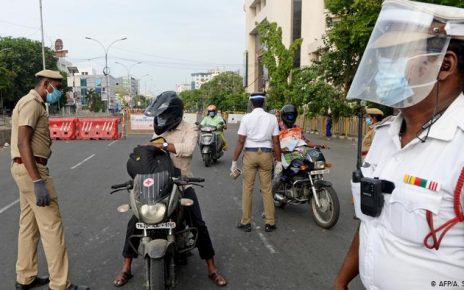ABC News
03 July 2020
By India correspondent James Oaten and Som Patidar
When shop owners P Jeyaraj and his son J Beniks were taken into custody, the pair was accused of committing a minor offence: keeping their store open for 15 minutes after curfew.
Key points:
- Five police officers have been charged with the murders of P Jeyaraj and J Beniks
- The father and son were detained when their shop stayed open 15 minutes after curfew
- In 2019, there was on average five deaths in custody in India every day
Four days later, both men were dead after allegedly being beaten, sexually assaulted and tortured at the hands of local police.
The case, in the south Indian town of Santhankulam, is seen as a monumental failure by multiple levels of India’s justice system.
Activists are now pushing to make their deaths a national turning point to stop police brutality, which disproportionately targets minorities and the poor in India.
“This was done by four authorities,” family lawyer PM Vishnuvarthanan told the ABC.
“Police officials, medical officers, judicial magistrate, and jail authority. If any of them had done their respective jobs, in time, and under law, it could have saved these two lives.”
How did a minor infraction result in two deaths?
On a Friday in mid-June, Jeyaraj was taken into custody to be questioned about whether his timber shop was open recently beyond curfew.

His son arrived soon after and tried to intervene as a police officer repeatedly slapped his father.
The pair was then taken to the station’s cells, where they were held overnight.
Nearby residents heard the men scream for help throughout the evening as they were allegedly assaulted.
“They were wailing and shouting,” said Robin Stanley, a lawyer who spoke to the ABC on behalf of a non-English speaking local witness who was outside the police station.
The following morning, the father and son were bloodied, swollen, bruised and hobbling as they were taken to a local hospital for treatment, before seeing a magistrate.
My heart bleeds to even read about this horrifying incident.Can’t imagine the pain father n son would’ve endured. With so much happening around us we should be helping each other out.Not bloody feed your ego n do something beyond imagination! #JusticeforJayarajAndFenix pic.twitter.com/7zLrlB2Tfq
— Dharan kumar (@dharankumar_c) June 26, 2020
The men complained about severe pain in their rectums, local media reported, and friends provided them with fresh sarongs to replace their blood-soaked clothes.
Lawyers claim the magistrate was given a fake medical certificate, and the court did not ask the pair about their physical condition or if they understood the charges, despite being required to do so by law.
The father and son were sent to a local jail, where their condition deteriorated.
Three days later, 31-year-old Beniks died after developing respiratory problems. His 60-year-old dad died soon after.
The only charges filed were against the son: breaching curfew and obstructing police from doing their duties.
A preliminary post mortem identified “grave” injuries throughout their bodies, but the family is now awaiting a more comprehensive report.
After public outcry, five officers were suspended and were charged with murder on June 2.
Fireworks in Santankulam following the arrest of 3 police officers who used brutal force on Jayaraj and Bennix. #JusticeForJeyarajAndBennicks #santhankulam pic.twitter.com/PddZAG12I4
— Poornima Murali (@nimumurali) July 1, 2020
The officers have been accused of tampering with evidence, and CCTV footage from the police station has been deleted.
‘Police torture has become quite routine’
The deaths of Jeyaraj and Beniks happened two weeks after the death of African American man George Floyd in Minneapolis, which reignited the Black Lives Matter movement that has swept across the world.
Activists in India are using the men’s death to shine a spotlight on the country’s own apathy towards rampant police brutality and discrimination against the poor and ethnic or religious minorities.
“Police torture has become quite routine and there is a level of acceptance,” said Jayshree Bajoria, a Delhi-based senior researcher with Human Rights Watch.
“In the US … you see structural inequalities and racism that work when it comes to use of excessive or disproportionate force against brown and black people.”
Ms Bajoria said those same structural inequalities affect Indians based on their caste, religion and gender.
Horrified to hear about the brutality inflicted upon Jeyaraj & Fenix in Tamil Nadu. We must raise our voice and make sure justice is given to the family. 🙏 #JusticeForJeyarajAndFenix
— Shikhar Dhawan (@SDhawan25) June 26, 2020
“If a person is more affluent or is educated or has connections, it is less likely that he will be beaten to death in police custody than a poor Dalit [low caste], or a small shop owner, or a [low caste] woman who goes to report rape.”
In recent months, police across India have been regularly captured beating people with their lathi, a long bamboo stick, for allegedly flouting India’s broad lockdown rules.

An ambulance driver in Pune was reportedly beaten to death for “illegally” transporting passengers, and a family in West Bengal blamed police brutality for the death of a 32-year-old man who went to buy milk.
Police brutality was allegedly responsible for 27 deaths in the first week of lockdown.
The poor and migrant workers of India were never given notice of the Corona lockdown. Many were stranded, flooded bus stations & couldn’t find a ride home.
Now they’re experiencing vicious police brutality.
Video from Telangana, India.pic.twitter.com/VnUSYRTaAP
— Arjun Sethi (@arjunsethi81) April 3, 2020
In 2019, there was on average five deaths in custody every day, according to two reports from the Indian not-for-profit United NGO Campaign Against Torture.
Often such cases get relatively little attention before the media cycle moves on.
Does Indian culture and history allow police brutality?
Ms Bajoria points to a couple of reasons why there is a “level of acceptance” in India.
In Bollywood movies, police officers are often portrayed as tough guys who beat up the villains, often garnering applause from the audience.
The Indian judicial system is widely renowned as painfully slow; therefore, beatings are often seen as a quick and reliable form of justice.

Then there is the culture of policing, which harks back to the days of British rule.
“Unfortunately, even in an independent India, to a large extent, that has not changed.”
Ms Bajoria said reform in India has stalled for decades for multiple reasons, including an inability to get witnesses to report police brutality out of fear of reprisals.
“India requires comprehensive police reform that has been stalled for decades,” she said.
“India has not ratified the UN Convention Against Torture. India needs a domestic law against torture.”

“Often, police officers are far more interested in shielding their colleagues and protecting their colleagues from accountability rather than holding them accountable.”
But the lawyer representing the family of Jeyaraj and Beniks said the legal system already had clearly defined checks and balances, which was now taking action.
“We can’t blame the entire police officials,” lawyer PM Vishnuvarthanan said.
“My relatives and the victim’s relatives are also functioning in the police department. We can’t blame the entire police department.”




